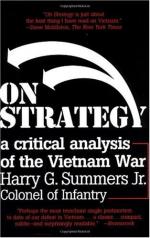|
This section contains 2,012 words (approx. 7 pages at 300 words per page) |

|
SOURCE: "Clockwork Marmalade," in The Listener, Vol. 87, No. 2238, February 17, 1972, pp. 197-99.
In the following essay, Burgess discusses the violence in A Clockwork Orange and reacts to criticism that both the novel and Stanley Kubrick's 1972 film version of it are gratuitous in their depictions of such content.
I went to see Stanley Kubrick's A Clockwork Orange in New York, fighting to get in like everybody else. It was worth the fight, I thought—very much a Kubrick movie, technically brilliant, thoughtful, relevant, poetic, mind-opening. It was possible for me to see the work as a radical remaking of my own novel, not as a mere interpretation, and this—the feeling that it was no impertinence to blazon it as Stanley Kubrick's Clockwork Orange—is the best tribute I can pay to the Kubrickian mastery. The fact remains, however, that the film sprang out of a book, and some of...
|
This section contains 2,012 words (approx. 7 pages at 300 words per page) |

|


